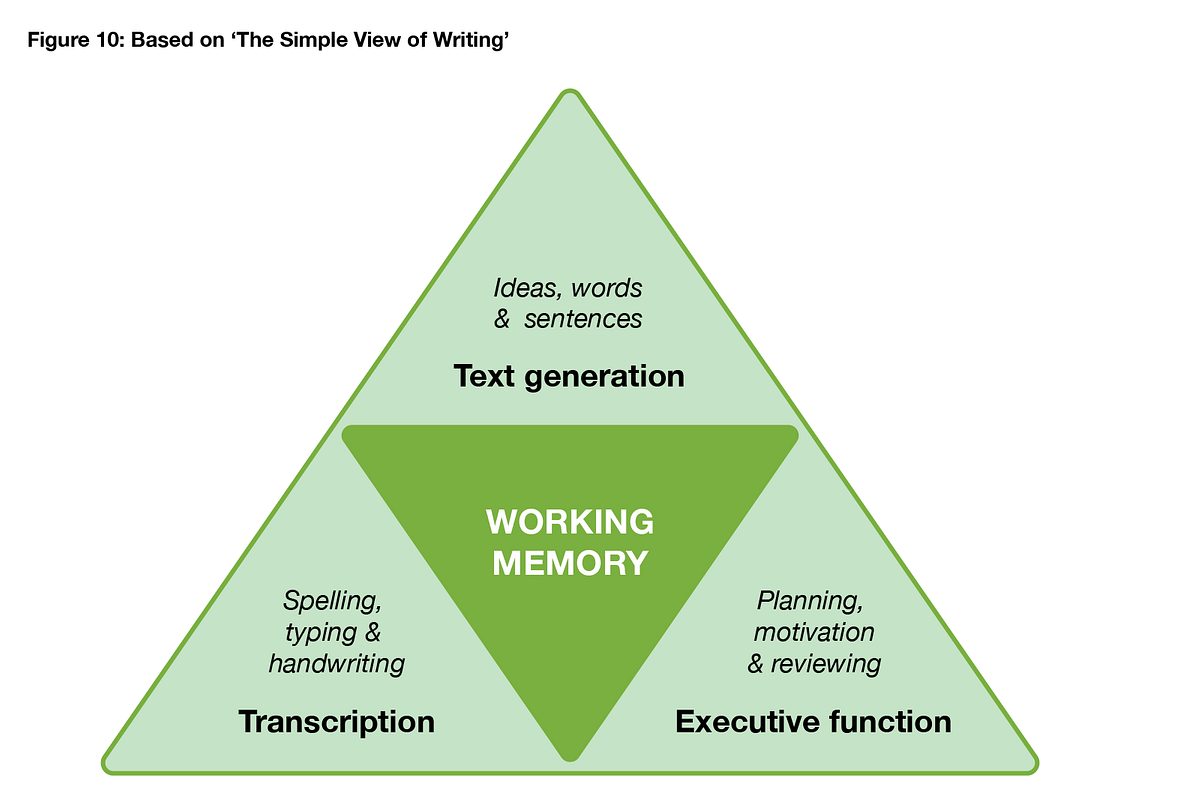
Blog -
Teetering Off Balance: Avoiding Wobbly PD
Just because your PD has a balanced design, doesn’t mean it is stable

Share on:

by Bradford Research School
on the
Mark Miller is Director of Bradford Research School
Our working memory capacity is finite, which means that we can only hold and process a limited amount of information at once, and we can only hold on to that information for a short period of time. Working memory capacity is an important consideration for the classroom, and certainly for writing.
The complexity of writing means that many demands are placed on our pupils’ working memory capacity. There are some general approaches to considering working memory, as outlined in our Working Memory: Research Into Practice guide which can help:
As well as these general strategies, we need to consider the unique aspects of writing. The EEF break down the complexity of writing into three components:
Students must be able to transcribe, that is, physically write or type.
They must be able to compose, generating ideas and translating them into words, sentences and structured texts.
Finally, students must use executive functions, to enable them to make plans, motivate themselves and review and redraft texts.
These multiple components place many demands on working memory capacity. The Simple View of Writing, developed by Berninger et al (2016), is a useful frame to support thinking:

The diagram above appears in the EEF’s KS1, KS2 and Secondary literacy guidance reports. This ‘simple view’ can help manage the complex reality of writing,
Diagnosis of the real issue
Sometimes we can make assumptions about barriers to success in writing. For example, a pupil may have written only one paragraph, when we expected a full page. It is easy to dismiss this as simply lack of effort (and it might be!), but it could be a number of issues:
It could be a transcription issue, such as a pupil who is struggling with spelling. It could be a composition issue, such as having no background knowledge to call upon. It could be an executive function issue, such as the inability to create an appropriate plan
There may be multiple challenges to address, all of which mean that the cognitive demands of writing increase.
Explicit instruction
We can teach aspects that we need to become fluent. Handwriting, spelling, sentence combining, editing strategies, etc. If these are taught to fluency, they are more automatic when pupils sit down to write. Some pupils will benefit from additional support.
Any prerequisite knowledge for writing should be taught too. It is hard to write when we have nothing to write about. And it’s hard to plan when we have no planning strategies to choose from.
Scaffolding
A pupil who struggles with handwriting will benefit from explicit instruction. But we can also find ways to mitigate for this challenge such as typing, or speaking and answer. If our goal is to improving handwriting, we teach it. But if our goal is to free working memory capacity in order to allow focus on composition, we scaffold it.
We can provide memory aids as scaffolds. For example, vocabulary lists or knowledge organisers can support composition. Writing checklists can support monitoring.
Once you see writing through the working memory lens, you will find the ability to solve some of these challenges.
You can join us for our ongoing series of webinars on working memory and writing. Next is ‘Transcription’ on Tuesday 21 November. We will be joined by Dr Emily Williams, who will share her research on typing.

Blog -
Just because your PD has a balanced design, doesn’t mean it is stable

Blog -
The EEF’s new implementation guidance report places a focus on engaging people

Blog -
We share questions and resources to unpick the EEF’s Voices from the Classroom
This website collects a number of cookies from its users for improving your overall experience of the site.Read more